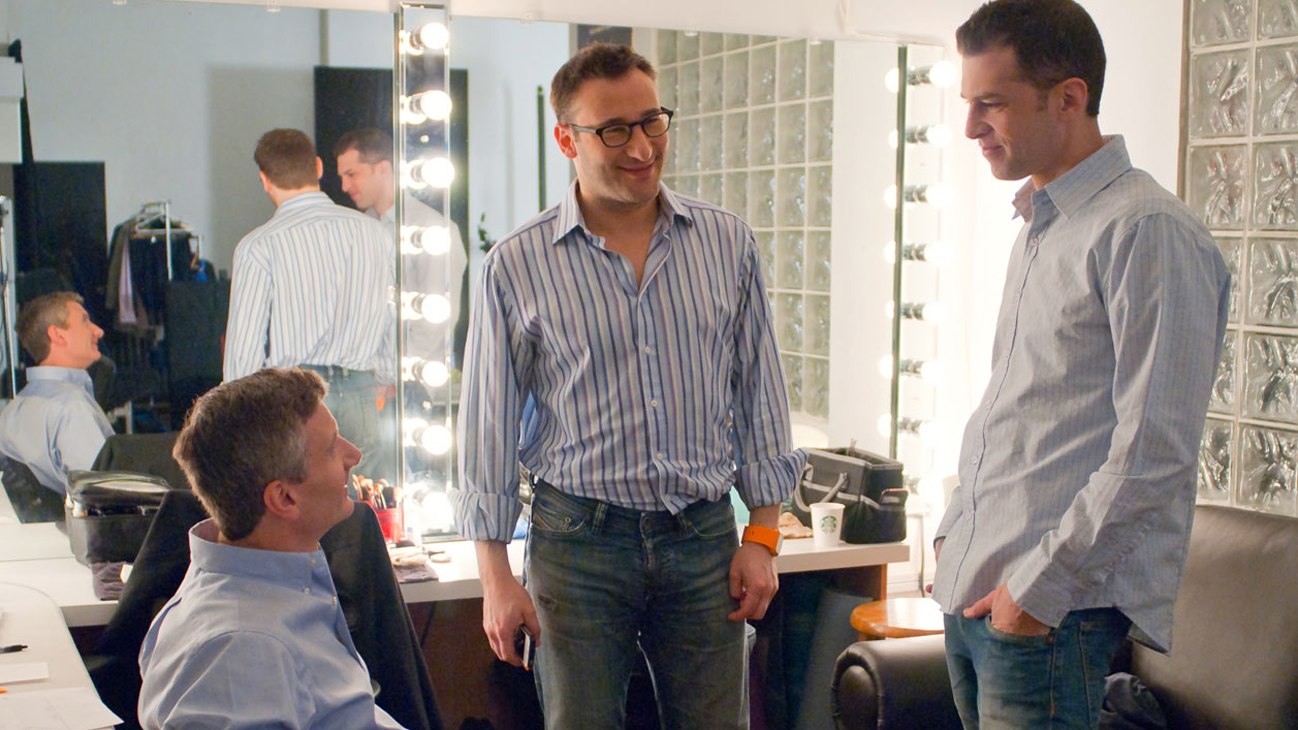Forbes magazine spoke with both David Mead and Peter Docker, who are the co-authors with Simon Sinek of “Find Your Why”, about how they came together to write the book, the first steps to finding your why, what to do when your work doesn’t match your why, why everyone has a why and their best career advice.
Docker is a former senior Royal Air Force pilot turned leadership consultant and executive coach. His commercial experience extends across Europe, Middle East and Africa, North America, Latin America, India, and the Far East. He has engaged at senior levels with several of the world’s largest companies, developing an understanding of many industries including oil and gas, construction, mining, pharmaceuticals, healthcare, banking, and aviation. Mead has presented to over 80 organizations in a wide variety of industries and co-hosts the Start With Why podcast. He has worked with organizations in a wide variety of industries including Johnson and Johnson, Zappos, Capital One, Home Depot and Hyatt.
Dan Schawbel: How did you both come together with Simon to write this book and why now seven years after the release of Start With Why?
David Mead: Ever since I joined the team, I’ve had a real interest in the “how to” component of Simon’s work. In fact, the reason I was invited to join the team in 2009 was because I heard Simon speak at a company where I was working and I took the idea and turned it into a training manual. Simon thought that was pretty cool and asked me to come help make his ideas more tangible. I think there’s always been a demand, for a “how to” to Start With Why. As I’ve learned, things happen when they’re meant to happen, and now was the right time. Over the years, we’ve helped thousands of people discover and articulate their Why, and have constantly been learning, listening and improving the process. This is the right time for this book and we’re excited to share it and to help many more people discover their Why.
Peter Docker: I don’t think either of us originally thought we would work together with Simon to write this book – or indeed any book! As David reflects, now just seemed like the right time. We’ve both been part of the Start With Why team for 6-7 years, helping to share Simon’s Why message across the world. We’ve built a fabulous relationship along the way – and that’s the key. Without that relationship, writing a book together would have been almost impossible. Our hope now is that many more people can use this book to help others discover their Why. Many more than we could possibly reach ourselves.
Schawbel: What are the first steps to finding your “why” and how do you make it unique to you and your career/life?
Docker: The first thing to remember is that finding your Why is a discovery. It’s not about creating anything. The discovery process starts with exploring the times in our lives when we felt particularly fulfilled, excited or inspired. They don’t need to be big events – often the seemingly trivial memory may have biggest significance for us. What they do need to be is specific. For example, we might talk generally about how we loved going away on vacation with our family when we were young, but it’s that specific year when our car broke down and we trudged for miles in the rain to get help that we remember. Specific moments in time trigger emotions and it’s those emotions that are usually linked to our values in life. When we recount several of these specific stories, common themes start to emerge and it’s these themes that point to our Why. Because our Why comes from our past and our past experiences, everyone’s Why is unique. We may feel someone else’s Why is similar, but it’s the stories behind the Why that make each unique and authentic.
Schawbel: What happens when your work doesn’t match your why? What should you do?
Docker: At first, do nothing! We need to build relationship to our Why. The deeper that relationship is, the more we understand about ourselves, and how we can live our Why. If we love our work, chances are it’s in tune with our Why. And by the way, to love our work doesn’t mean we always like As Simon says, we love our children all the time, but we don’t necessarily like them all the time! If we feel we don’t love our work then discovering our Why can help us gain insight into what’s going on. Often, being able to express our Why in words enables us to more easily figure out how to bring our Why to life in the work we do. Work that we previously felt to be unfulfilling suddenly takes on fresh meaning. Sometimes however, no matter how hard we try, it might be that we’re on the wrong path. Perhaps we realize that we’re working with people who don’t believe what we believe. If that’s the case, then maybe it’s time to move on. The best thing is, knowing our Why gives us a clear filter to make the choices in life–not just work–that will lead to us building on who we are when we’re at our best. Whatever we choose to do, moving toward something (e.g, a situation in which we can thrive) is always better than moving away from something.

